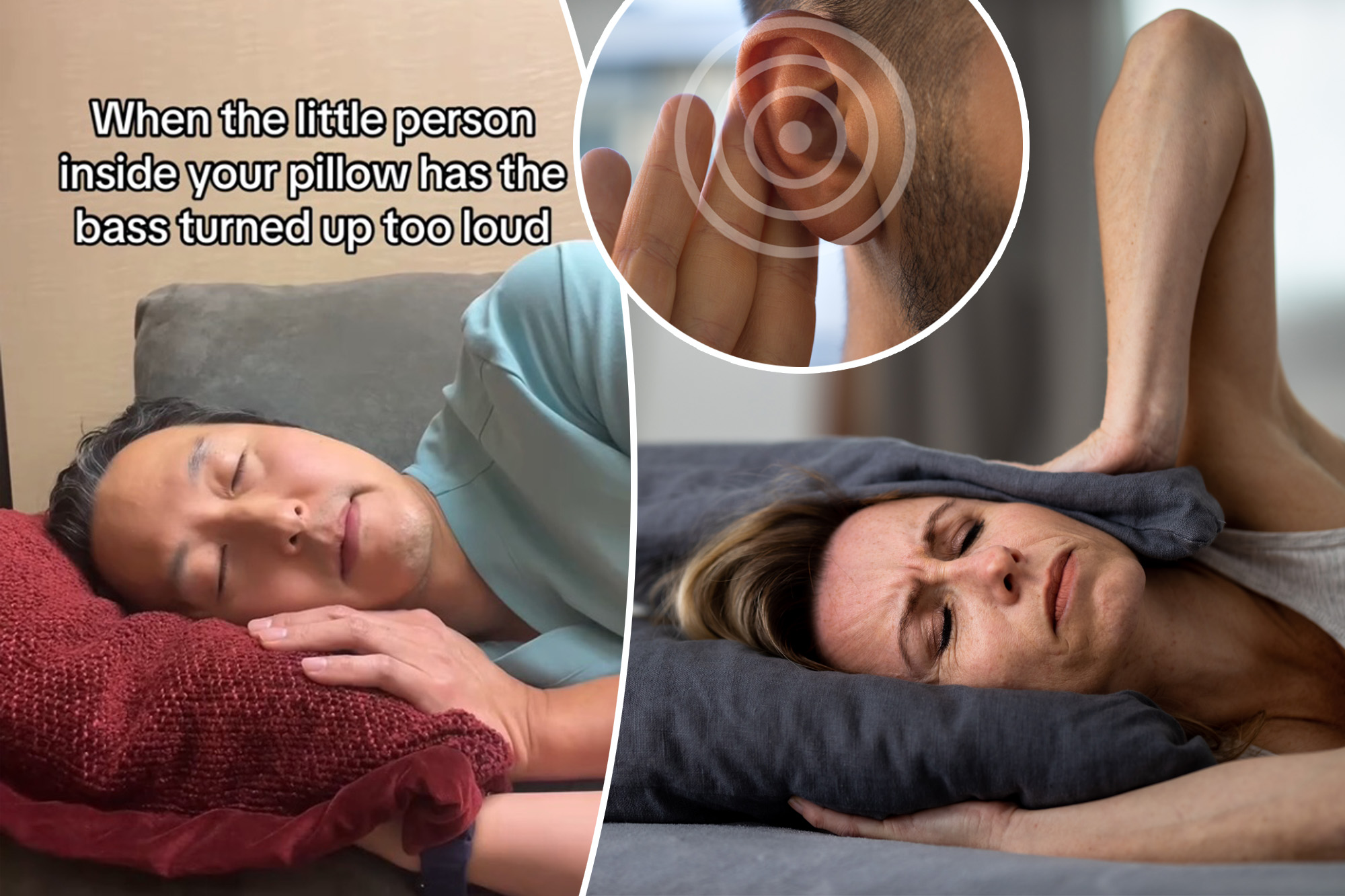
If you occasionally hear a strange thump when you’re lying in bed, don’t worry!
A Detroit-based doctor says it’s quite common to occasionally hear your heartbeat when you lie on your side, especially if you’re in a very quiet room.
“If, from time to time, you’re lying on your side and you can hear your heart beating, it’s very likely that your carotid artery is basically sitting against your pillow,” Dr. Anthony Youn, a board-certified plastic surgeon. on TikTok.
“But if you hear your heart beating all the time when you’re lying on your side, or especially when you’re standing, then it could be pulsatile tinnitus,” Youn continued.
Pulsatile tinnitus is a relatively rare condition believed to affect 3 million to 5 million Americans.
In one or both ears, patients hear a rhythmic noise—such as a crackling or humming sound—that matches their pulse.
A 59-year-old male patient recently described it as “a washing machine on a spin cycle and a vacuum.”
Pulsatile tinnitus occurs when there is a disturbance in blood flow in the arteries and veins near or around the ears.
“Although it’s usually benign, there are some potentially worrisome causes, so it’s best to see your doctor,” Youn said.
Tinnitus can be caused by a blockage in the ear, high blood pressure, narrowing of the veins or arteries in the head and neck, an abnormal connection between the arteries and veins, benign tumors of the head or neck, elevated pressure inside the brain, and more. rarely, anemia and pregnancy, which make the heart work harder.
The condition is usually diagnosed with an examination of the ears, neck and head, hearing tests and imaging scans to see what is happening to the blood vessels.
Treatment depends on the underlying cause – the good news is that up to 70% of patients understand the reason for the noise.
“Most of the time, pulsating tinnitus is nothing to worry about,” said Dr. David M. Vernick, an otolaryngologist and head and neck surgery specialist, to Harvard Health earlier this year.
“If it doesn’t go away on its own after a few weeks or it becomes really bothersome, talk to your doctor about it,” Vernick added.
#hear #heartbeat #lying #worry
Image Source : nypost.com